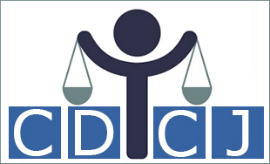Disciplinary responsibility is one of the building blocks of an accountable judicial system, which interacts between two fundamental principles of a modern society: independent adjudication and the need for public confidence in judiciary. In order to achieve this balance, ethical and disciplinary systems in one country need to function effectively and without bias, to ensure integrity of judicial officials and protect the dignity of the judicial profession.
Still, as per the conclusions of the online workshop held on 9 December 2020 in co-operation with the Judicial Training Center: a disciplinary liability of a judge or a prosecutor does not always imply the violation of the professional ethics, nor do all breaches of ethical rules constitute a disciplinary offence. The workshop gathered members of the Ethical and Disciplinary Commissions, Disciplinary Prosecutors and members of the Judicial and Prosecutorial Councils and focused on the distinction between disciplinary offences and violations of judicial ethics. The workshop was facilitated by Council of Europe consultants (one international and one local), with the aim to further support the Montenegrin judiciary in strengthening the role and capacities of disciplinary prosecutors and ethical and disciplinary commissions.
During the workshop, a wide range of issues was discussed among the Council of Europe consultants and the members of the Montenegrin judiciary, focusing on the concrete connections between freedom of expression, social media and judicial ethics. Matters related to gender equality were also elaborated and illustrated by the practical examples from the Council of Europe member states. The national legal framework and practice were analysed and discussed as well, based on concrete examples of decisions of the ethical and disciplinary bodies and focusing on the most critical issues and challenges to be addressed in the local context.
The workshop was organised under the action “Accountability and professionalism of the judicial system in Montenegro” (Montenegrin website) within the framework of the European Union and Council of Europe joint initiative “Horizontal Facility for the Western Balkans and Turkey 2019-2022”.



